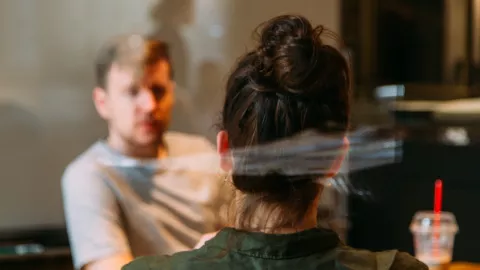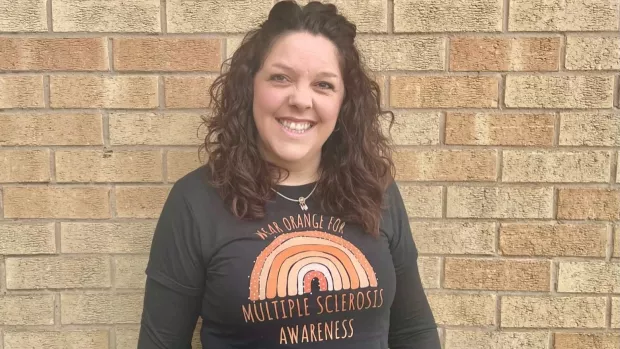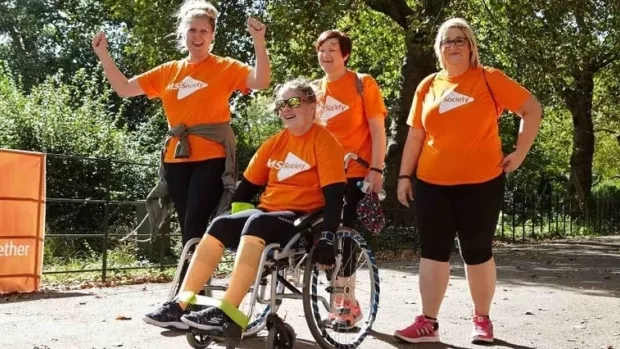
You don't have to be in crisis to have counselling
Libba Byrne, from Edinburgh, works as a psychotherapist. When she was diagnosed with MS she knew how important it was to take care of her mental and physical health.
I was diagnosed with relapsing remitting MS in 2018. I’ve had optic neuritis more than once and experienced a catastrophic relapse the year I was diagnosed. I lost the use of the left side of my body and sensation in my left arm and leg. This resulted in serious mobility problems. I have most of the use back now, but not all the feeling.
A range of emotions
When you’re diagnosed with something like MS, you can go through a whole range of emotions. There’s the fear of what the diagnosis might mean. The grief for your old way of life and how you used to live. And wondering how things will be in the future. And I think all these things are so emotionally destabilising that it’s important to find a place to unpack all the grief, fear, worry and anxiety. I recognised that if I didn’t do that, I wasn’t giving myself the best opportunity to recover and rehab from the relapses. And, just manage day to day living with MS.
A safe space to talk
I initially had counselling from the NHS, which was very useful. But I wished there was an MS-specific counselling service. So, I started online counselling sessions with the MS Society Wellbeing hub for Scotland. I was so pleased they were able to offer that.
The sessions are over Zoom, which is fantastic because it makes it more accessible for a lot of people. They can be as structured or unstructured as you want them to be, they can just be a safe space to talk.
Find out more about available counselling services
Wellbeing and health
The term ‘mental health’ can have negative connotations. ‘Mental wellbeing’ is a nicer way to describe what it’s about - which is looking after yourself. I feel that I have a responsibility to myself, and my family, to look after myself. In the same way that I did lots of physio when I couldn’t walk properly.
Accepting the uncertainty
There are so many unknowns with MS, it can make life feel unstable. You can go through periods of significant relapse but on the flip side you can go through periods of lovely remission!
You never really know how you’re going to feel when you wake up each day. For me, being able to accept the condition and live with the uncertainty and to be genuinely ok with that has been huge. It’s freed up my capacity to get on with my life, get on with my work, with being a mum and a wife. And finding the joy.
Mental wellbeing check-in
You don’t have to be in crisis to have counselling. Prevention is the best way forward. I think we should view our mental wellbeing in a similar way to our six-monthly check-up at the dentist – it’s just about checking in. When you’ve got MS, you’re so used to having lots of different medical interventions Mental wellbeing can become part of that.
I’d love to get this message across to everyone but especially to people with MS because there are things we live with every day that makes life challenging. Living with MS is hard and I think if you’re able to access mental wellbeing support it just helps you to live with it. I think everyone can benefit from having therapy but particularly so for someone living with a long-term health condition.




